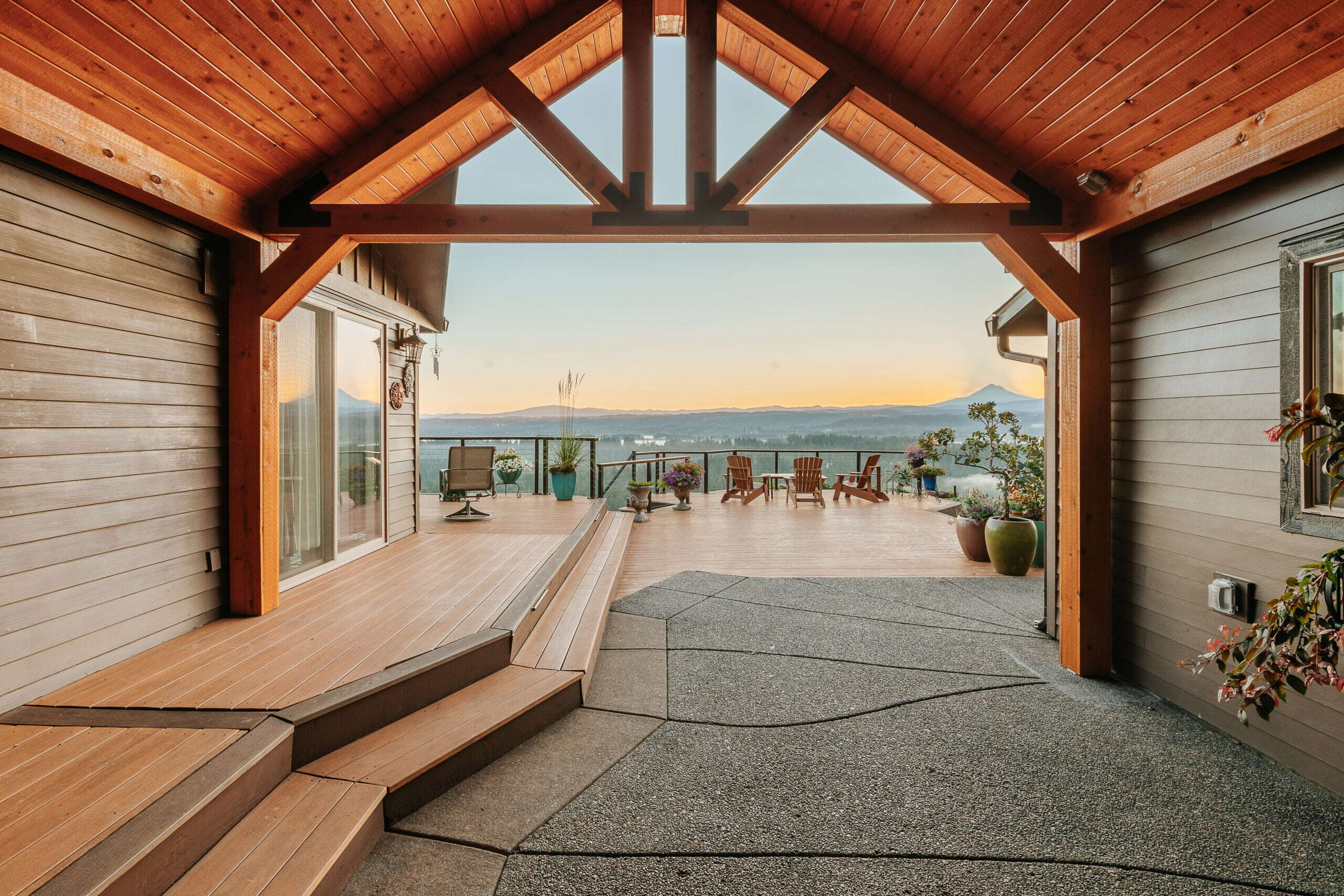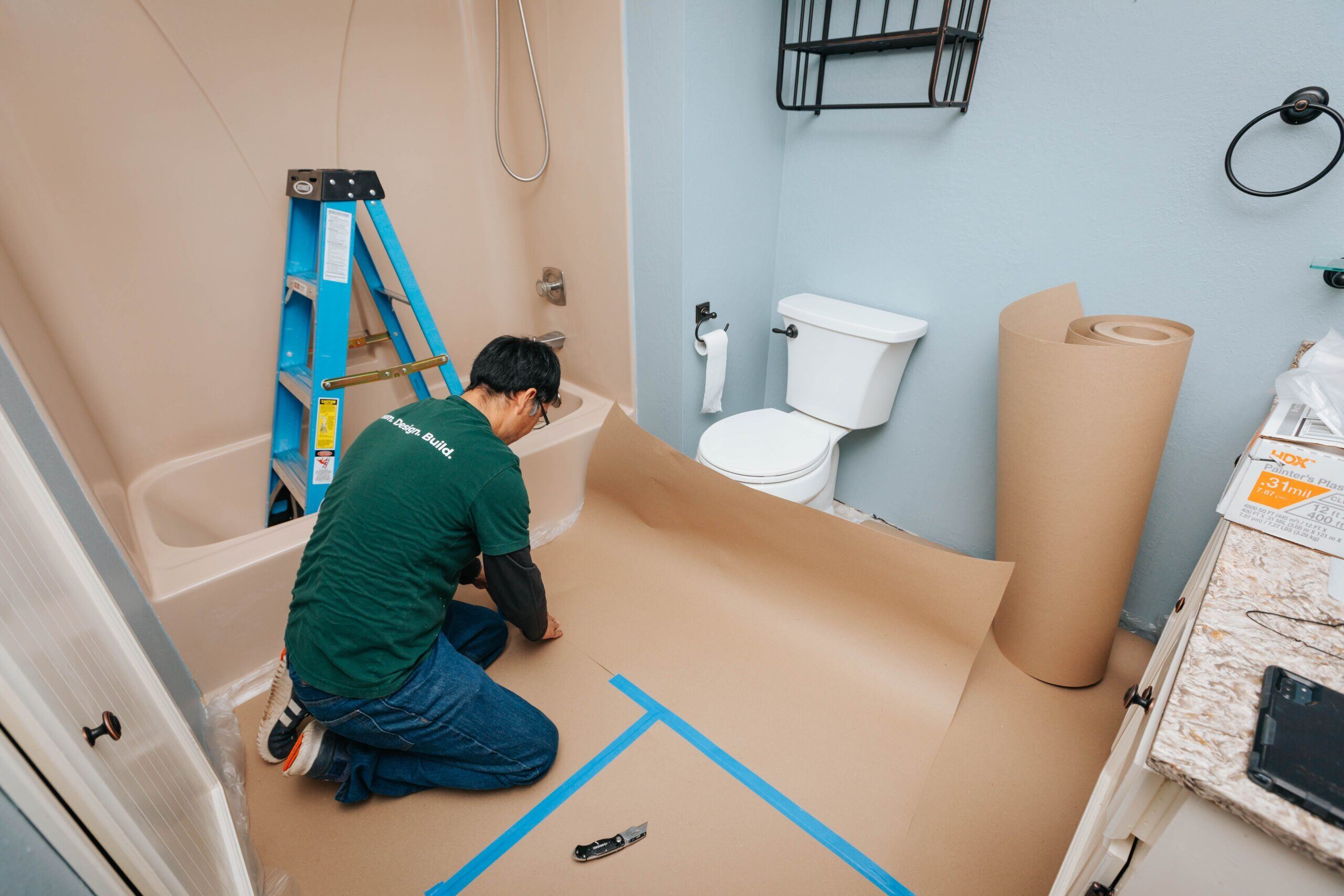When you bought your house, it was good enough for your needs as a homeowner. Perhaps it was even the perfect home for you at the time. But somewhere along the way, your needs changed, leaving you with a difficult choice: remodel your current home, or purchase a new one and move.
Every year, homeowners caught in this challenging dilemma come to our team at Lamont Bros. Design & Construction to explore their home remodeling options. While many of these people ultimately choose to remodel, we’ve also helped several families recognize that their best option was to move rather than invest in renovating their current home. The best solution looks a little different for each person, but there are several common factors that every homeowner should consider before deciding to move or remodel.
In this article, we’ll help you explore these important considerations as you consider which option is best for you. After reading, you’ll understand some of the most important issues to take into account when deciding whether to move or remodel. With that information, you’ll be able to make a more informed decision that meets your needs and your budget. The topics we’ll discuss in this article include:
- 5 Important Factors To Consider
- Reasons To Move instead of Remodeling
- Reasons to Remodel Instead of Moving
Factors to Consider When Deciding Whether to Move or Remodel
When faced with the choice between moving to a new home or remodeling your existing one, several critical factors come into play. Each one reflects your personal circumstances, aspirations, and the realities of your current situation. Below are some of the most common considerations homeowners make when considering whether to move or remodel.
Do You Love Your Current Location?
The old and simple adage “location, location, location” holds true in the context of moving versus remodeling.
Loving where you live goes beyond the walls of your home. It includes the quality of local schools, access to employment opportunities, and the sense of community you feel in your neighborhood. It’s also affected by how central your home’s location is to the places you visit throughout your day-to-day schedule.
If your current location checks all these boxes, remodeling might be the way to go. This option allows you to enhance your living space without giving up the invaluable aspects of where the home is located.

What is Your Tolerance for Disruption?
Both moving and remodeling come with their share of disruptions to your daily life. However, the nature and duration of these disruptions can vary significantly.
Remodeling usually involves living in a construction zone for months. You’ll likely deal with noise, dust, and the constant presence of workers throughout the day.
Moving, on the other hand, involves packing, selling your current home, and adjusting to a new living environment altogether.
Your tolerance for these disruptions should play a key role in which option you choose. Think of the difference as being the choice between a marathon and a sprint.
While the process of moving is typically much shorter than remodeling, the disruptions – though short-lived – are more intense in the moment. On the other hand, the remodeling process often takes several months in planning and construction but doesn’t usually require you to uproot your entire life at any point throughout the process. Rather, you deal with a handful of minor inconveniences over the course of several weeks.

Financing
The financial implications of moving versus remodeling can be confusing for homeowners who have never navigated the options before.
When exploring financing, you should consider current interest rates, the equity you have in your home, and the overall affordability of each option.
Remodeling might have a significant upfront cost, but usually increases your home’s value. Moving might seem simpler but comes with its own costs, including real estate commissions, moving expenses, and potential changes in your mortgage rate.
For example, in times when interest rates are high, it might make more sense to remodel to avoid getting a new mortgage at a higher rate. This is why a lot of homeowners are currently choosing to renovate their homes using equity.
Priorities and Goals
Understanding what must change in order for your home to meet your needs is an important part of deciding whether to move or remodel.
What is your priority? Do you need more space as your family grows? Do you want a home that better suits your quality standards or aesthetic preferences? Are there certain areas of your home that need specific improvements, like the kitchen or bathroom?
Often, the goals you have for the functionality and aesthetic of your living space can be achieved through remodeling. In other cases involving big-picture changes, such as the architectural style of the home or the amount of natural sunlight available, moving to a new home might be the only way to fulfill those desires.
Home Systems Evaluation
Especially in older homes, the condition of essential systems like HVAC, plumbing, and electrical can significantly influence your decision to stay or go.
Upgrading or completely replacing any of these systems can be costly but necessary for comfort, efficiency, or safety. For example, many historic homes that use old knob-and-tube electrical wiring should be completely re-wired to avoid fire risk. However, the cost of doing so can be tens of thousands of dollars.
It’s important to evaluate the state of these systems so you can understand whether remodeling or moving is the more sensible option financially and logistically.

Reasons to Move
Deciding to move to a new home is a life-changing step that involves evaluating your current living situation against your personal and family needs. Here are several reasons why moving might be the right choice for you:
Inadequate Property for Remodeling
Sometimes, your current property simply cannot support the changes you envision due to limitations on its size, layout, or local zoning regulations.
If your dream is to add a significant amount of living space by building a home addition but your property lines or setback laws won’t allow such expansions, you may simply need to buy a larger home. Or, if you wish to make changes that are not permissible due to building codes, moving to a property that can accommodate your desires might be the best path forward.
Recently, Lamont Bros. was approached by a homeowner who wanted to expand their home into the backyard. However, due to the City of Portland’s strict tree protection laws, the addition’s foundation had to be custom-designed to avoid damaging a large tree in the yard. Ultimately, the cost of such a project was too much for the homeowners to justify, and they chose not to proceed with the project.

Desire for a Different Location
Your needs or preferences for a particular neighborhood or community might have evolved since you purchased your current home.
Even if you like the region where you live, you may have your sights set on a different part of town. Whether it’s seeking a better school district, wanting to be closer to work, or longing for a change in scenery, the desire for a different location is a compelling reason to move.
Cost Considerations
In some cases, the cost of extensive remodeling can exceed that of purchasing a new home that already meets your needs.
This is especially true if the changes require substantial structural changes or a full gut. Evaluating the financial implications of both options can reveal that moving is the more economical choice.
Anticipating Neighborhood Changes
Future developments or changes in your current neighborhood might affect the livability or value of your home. For example, if new construction near your home promises to turn the area into a crowded subdivision or busy shopping center, you might want to find somewhere more peaceful.
If you anticipate upcoming changes to negatively impact your lifestyle or home value, relocating to a more stable or desirable area could be a wise decision to protect your family’s quality of life and your investment.
Reasons to Remodel
Remodeling your home can be a rewarding investment, allowing you to customize your living space to suit your exact needs and preferences. Here are key reasons to consider remodeling over moving:
Satisfaction with Current Location
If you love your neighborhood, local community, and the conveniences your current location offers, remodeling allows you to enjoy these benefits while upgrading your living space. The emotional attachment and satisfaction with your surroundings can make remodeling the more appealing option.
Property with Potential for Expansion
Owning a property that has room for expansion or modification is a golden opportunity to create your dream home without relocating. Whether it’s building an addition, reconfiguring the layout, or adding an accessory dwelling unit on the property, choosing to remodel can help you make the most of the property you love.

Financial Incentives
Current homeowners might find financial advantages in remodeling. For example, if you have a great interest rate on your mortgage and have equity built up in the home, you can borrow from the equity in your home with a home equity loan without affecting your current mortgage rate.
Additionally, historic home value data shows that home renovations grow in value over time. After several years of compounding growth, a remodel’s value can surpass its initial cost and turn a profit.
These financial incentives can make remodeling a financially savvy decision, particularly if you plan to stay in your home long-term.
Customization to Personal Taste
One of the most valuable advantages that remodeling offers in terms of lifestyle benefits is the unparalleled ability to tailor your home to reflect your personal aesthetic, needs, and lifestyle.
Whether it’s a gourmet chef’s kitchen, a spa-like bathroom, or an expansive outdoor living space, remodeling allows you to create a home that truly feels like your own.


Want to Learn More About Your Remodeling Options?
Now that you understand more about what factors may influence your decision to move or remodel, do you have a better idea of which is right for you? As you continue to explore your renovation options, it’s important to consult with a contractor who understands the actual costs and potential challenges of remodeling your home. To make sure you find the right contractor for your needs, download our free 3-Step Contractor Selection Guide. In it, you’ll find advice and insights from remodeling professionals on how to find a qualified contractor for your project.
Want to speak directly with a professional designer about your renovation ideas? If so, click the link below for a no-cost, obligation-free consultation with a member of our design team. We’ll help you explore your options and develop a plan for your remodel so you never have to face the challenges of home renovation alone.

